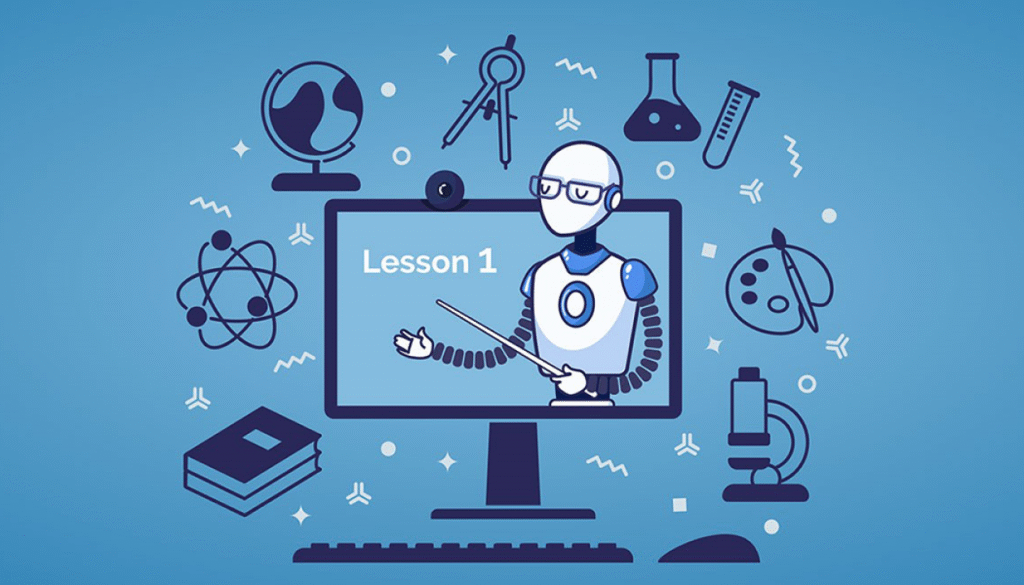Imagine if every new teacher could access personalised, thoughtful coaching—anytime, anywhere. No longer constrained by time, location, or budget, AI stands poised to revolutionise how we prepare educators. By embedding intelligent coaching models into teacher training, we can finally address longstanding challenges, including scalability, equity, and fatigue.
Table of Contents

The Traditional Dilemma
Historically, preparing teachers has relied on a few core elements: university-led coursework, limited practicum experiences, and sporadic mentoring by veteran educators. While valuable, these approaches are inherently bounded by resources, time, personnel, and access. Rural and underfunded districts often struggle to provide consistent, high-quality mentorship, and pre-service teachers receive limited feedback on their reflective practice.
Enter AI: A Scalable, Consistent Mentor
Recent advancements in AI-powered coaching tools are transforming this landscape. Imagine a chatbot that can engage new teachers in reflective questioning, prompting them to set goals, reflect on classroom interactions, evaluate outcomes, and iterate their approach. These tools, accessible 24/7, are scalable and consistent, ensuring that every pre-service teacher—regardless of geography—receives tailored, thoughtful coaching.
Building a Reflective Hive Mind
Reflection isn’t just personal; it’s communal. Well-designed AI platforms allow anonymous sharing of challenges, reflections, and solutions. Picture a virtual community where one teacher’s inquiry, like “How did I manage disruptive behaviour today?” sparks insights and feedback from peers around the globe. Over time, such shared practice cultivates what educators call “collective efficacy,” elevating teaching standards beyond traditional silos.
Advancing Equity Through Inclusion
Equitable teacher preparation means more than opportunity; it means relevance. AI tools, when properly designed, can be culturally responsive—adapting prompts, case studies, and resources to fit local contexts. Whether a student-teacher is in a suburban California classroom or an urban school in Lagos, the coaching experience can resonate with their community’s realities, not some one-size-fits-all standard.

Evidence of Success
Early pilots reinforce this promise. Institutions piloting AI-coaching models report sharp rises in reflective depth, self-confidence, and goal-setting behaviours among pre-service teachers. In districts where mentor resources are scarce, AI tools effectively bridge gaps, leading to improved classroom readiness and retention.
Addressing Valid Concerns
Sceptics rightly raise questions about AI’s role in human-driven fields:
- Depersonalization: To counter this, designers ensure AI remains a facilitator, not a replacement. Human mentors are still central—AI simply augments their reach.
- Bias in Prompts: Curricular designers and practitioners co-create the underlying frameworks, ensuring cultural sensitivity.
- Data Privacy: Robust protections and transparent policies guard users’ reflections and identities.
- Over-reliance: Research-backed usage guidelines encourage AI as a launching pad, not a crutch.
A Reimagined Role for University Faculty
In this vision, faculty become orchestrators: designers of reflective rubrics, monitors of AI outputs, and conveners of learning communities. Freed from repetitive coaching tasks, they can focus on deepening pedagogical discourse, championing equity, and refining teacher identity formation.
What Adoption Looks Like in Practice
Consider a university that onboards new teacher candidates with an AI-driven reflection platform. Each week, reflective prompts—around lesson planning, student engagement, or inclusion—are circulated. Responses are shared in dashboards and small-group video sessions. Faculty monitor trends, spot emerging issues, and step in to amplify conversations that require human insight.
Measuring Impact: From Reflection to Results
The transition from introspection to impact requires metrics. Promising signals include:
- Growth in reflective thinking and goal-setting
- Higher self-efficacy scores
- Smoother classroom management during student teaching
- Retention rates in high-need districts
Ongoing research is essential, partnering with universities, school systems, and funders in iterative cycles of implementation and evaluation.
Scaling Responsibly
Scaling this model calls for shared design standards, open-access platforms, and cross-institutional data-sharing agreements. If universities collaborate—pooling reflective cases, curricular frameworks, and evaluation tools—access to high-quality teacher-prep can be democratised.
A Vision Beyond Training
The impact doesn’t stop at credentialing. Retaining teachers is often about ongoing support. AI-based reflection can extend well into early-career years—helping new educators troubleshoot lessons, adapt to shifting community demographics, and maintain resilience under pressure. This “always-on” coaching ecosystem could revolutionise teacher development from pre-service to tenured.

Implications for Policy and Funding
Policymakers and funders play pivotal roles by:
- Incentivising equitable access to AI coaching
- Supporting open standards and shared infrastructure
- Embedding reflective metrics in teacher-certification processes
- Ensuring ethical data practices and inclusivity safeguards
Conclusion: Toward a Reflective, Equitable Future
By harnessing AI as a partner in reflection—not a replacement—teacher preparation can be more scalable, equitable, and professionally enriching. This is not about replacing human mentors, but magnifying their impact—equipping every pre-service and novice teacher with consistent, culturally responsive, scalable coaching. The promise is profound: better-prepared teachers, stronger schools, and more equitable outcomes for all students.
Join our WhatsApp community
Join Our Social Media Channels:
WhatsApp: NaijaEyes
Facebook: NaijaEyes
Twitter: NaijaEyes
Instagram: NaijaEyes
TikTok: NaijaEyes





